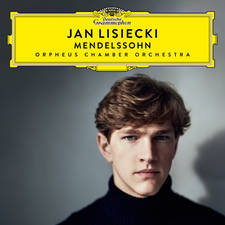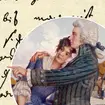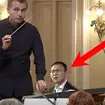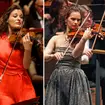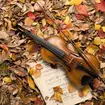Best Tchaikovsky works: 10 of the composer’s best musical masterpieces
25 January 2022, 13:05 | Updated: 10 February 2022, 11:59
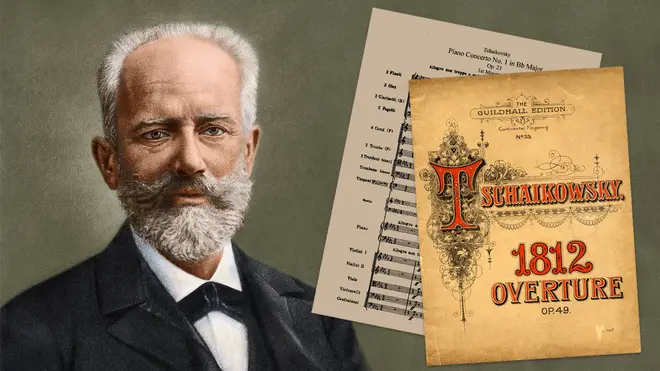
One of the most prolific composers of the Romantic era, Tchaikovsky's pieces such as Swan Lake and Sleeping Beauty remain profoundly popular to this day. From his symphonies to his ballets, here’s a definitive list of the top 10 Tchaikovsky pieces of all time.
Peter Ilyich Tchaikovsky is one of the greatest composers of the Romantic era, and with three ballets, five concertos, seven symphonies, 10 operas and countless other pieces of classical music to his name, it’s hard to pick a favourite of his works.
Born in Russia, Tchaikovsky’s personal life is shrouded in mystery from the patronage of the elusive Nadezhda von Meck who he was instructed never to meet, to the speculation over his sexuality and even the cause of his death.
The one thing we do know for certain is that the composer absolutely knew what he was doing when it came to writing music, especially if Swan Lake and Sleeping Beauty are anything to judge by.
Here are 10 of Tchaikovsky the composer’s best musical masterpieces:
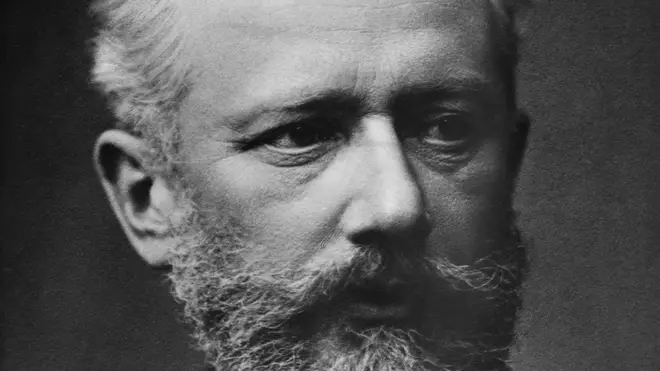
-
The Nutcracker
Like Swan Lake before it, The Nutcracker was met with a lukewarm response at its premiere in 1892. Despite this, both are now among the most popular ballets of all time, and The Nutcracker contains so many popular melodies that Tchaikovsky transformed some of his own favourites into the 20-minute Nutcracker Suite which includes Dance of the Sugar-Plum Fairy, Dance of the Reed Flutes, and Waltz of the Flowers, among others.
The two-act ballet is an adaptation of a story by the German writer E.T.A. Hoffmann, where a young girl named Clara is transported to a magical world at Christmas time where all her toys, including a nutcracker soldier, come to life.
Read more: 10 of the best Romantic composers in classical music history

The Nutcracker and I – Alexandra Dariescu
-
1812 Overture
Tchaikovsky’s 1812 Overture is a firecracker of a piece – quite literally. Written in 1880, it pays tribute to the Russian army’s defence against Napoleon Bonaparte’s invasion in the year 1812.
At just 15 minutes long, its dramatic climax is one of the best-known moments in classical music and even calls for the use of cannon fire and carillon bells at its peak. Unsurprisingly, this is quite impractical for indoor performances, so orchestras often find other ways to mimic the sound with bass drums, gongs, or even hitting objects on stage with a sledgehammer.

1812 bass drum fail, Westlake High School in Westlake, Ohio
-
Swan Lake
The first of three ballets written by Tchaikovsky, Swan Lake is one of the most iconic ballets of all time, from the music through to the costume and choreography. Critics at the time of its premiere thought its music was “too noisy” and “too symphonic”, but we reckon this is exactly what makes it so timeless.
The story is one of tragedy and romance: an evil sorcerer has transformed women into a flock of swans, and when a Prince falls in love with one of them – Odette – he vows to break the spell. The sorcerer’s trickery interferes, and the story ultimately ends tragically for the Prince and Odette. The ballet contains some of Tchaikovsky’s best and most dramatic musical moments, with themes that are immediately recognisable and will make you want to dance.
Read more: Spine-tingling moment ballerina with Alzheimer’s remembers routine to Swan Lake

Tchaikovsky: Swan Lake - The Kirov Ballet
-
Symphony No. 5
Tchaikovsky’s fifth symphony was composed in 1888, receiving its premiere in November of that year at the Mariinsky Theatre in Saint Petersburg where it was conducted by the composer himself. Unlike the two symphonies that came before it (No. 4 and the Manfred Symphony), this one does not have a clear programme, or narrative. It does have a main theme, heard in the very opening of the first movement, that reappears throughout all four movements in various different forms. This symphony earns its place in the top 10 with its back-to-back anthemic melodies, gorgeous harmonies, darkly brooding themes and musical drama from the height of the Romantic era.

Tschaikowsky: 5. Sinfonie ∙ hr-Sinfonieorchester ∙ Manfred Honeck
-
Piano Concerto No. 1
For a piece of music that spotlights one instrument in particular, Tchaikovsky’s Piano Concerto No. 1 includes some of the best melodies ever written for orchestra. Not only one of the top 10 works by Tchaikovsky, this is undeniably one of the world’s favourite piano concertos too, having been performed by most (if not all) of the biggest names in the piano world from the 20th and 21st centuries. Extracts from the piece have been used in all kinds of media and culture, including an episode of SpongeBob SquarePants and Monty Python’s Flying Circus, as well as being used in various sporting events as the anthem for the competing Russian teams.
Read more: A Tchaikovsky piano concerto is being played at the Olympics instead of the Russian National Anthem

Tchaikovsky's Piano Concerto No. 1 - Yejin Noh
-
Symphony No. 6, 'Pathétique’
Tchaikovsky’s final completed symphony, No. 6, was first performed on 28 October 1893, just nine days before the composer’s untimely and suspicious death. Often nicknamed the ‘Pathétique’, its Russian translation is closer to “passionate” or “emotional”. Before its premiere, Tchaikovsky considered calling it the ‘Programme Symphony’, but ultimately decided against this as he was cautious about drawing undue attention to the programme which he was not prepared to reveal.
Due in part to the speculation that many have cast over the composer’s death, several critics and scholars have suggested that parts of the symphony may be something akin to a suicide note, or at least an expression of his mental and emotional torment – a musical goodbye. Others are less certain, stating that there is no way Tchaikovsky could have known of his impending death while composing the piece, and the composer’s own brother even noted at the time that he had not seen him in such good spirits for a long while. With a piece of music this good, it seems only fair to have a listen and make up your own mind.
Read more: Tchaikovsky, composer of the world’s most uplifting ballets, had crippling self-esteem issues

Tschaikowsky: 6. Sinfonie (»Pathétique«) ∙ hr-Sinfonieorchester ∙ Lionel Bringuier
-
Romeo and Juliet Fantasy Overture
The Romeo and Juliet fantasy overture is a piece of music for orchestra with all the drama, romance and tragedy of Shakespeare’s play packed into just 20 glorious musical minutes. The piece is based around three main strands of the story, each represented by a musical theme which twist and turn and tangle together as the narrative plays out.
Friar Laurence and the religious component of the story are represented by a chorale-like chord progression. The love theme is full of sweeping strings and soaring melodies for flutes and oboes, conveying all the yearning of a forbidden love. The conflict theme, meanwhile, is a musical battleground for brass and percussion, with stabbing irregular rhythms, agitated and urgent string sections that form a perfect musical depiction of the anger and animosity between the Montagues and Capulets, complete with clashing swords.

Tchaikovsky: Fantasy Overture 'Romeo and Juliet' - Radio Philharmonic Orchestra - Live Concert HD
-
The Sleeping Beauty
Like Tchaikovsky’s other ballets, The Sleeping Beauty remains a firm favourite in today’s theatres. Based on an adaptation by the Brothers Grimm of Charles Perrault’s original story, the ballet director at St Petersburg also incorporated other characters thought up by the French author, from Puss in Boots to Tom Thumb.
The story is well-known, immortalised by the 1959 animated film by Disney which made use of much of Tchaikovsky’s original score, most notably ‘The Garland Waltz’ which provided the melody for ‘Once Upon a Dream’. Tchaikovsky was famously self-deprecating about his talents as a composer, but The Sleeping Beauty appears to be one of the few works in which he took long-lasting pride. And rightly so, as this three-hour masterpiece proves the depth of emotion Tchaikovsky was so skilled at conveying through his music.

Tchaikovsky: The Sleeping Beauty Suite, Op.66a - Nordwestdeutsche Philharmonie - Live Concert HD
-
Violin Concerto
Tchaikovsky only composed one violin concerto in his time, and it has appropriately become one of the world’s favourite concertos. Written during a retreat to Switzerland, where he had travelled in order to recover from a bout of depression caused by his acrimonious marriage, the piece is surprisingly light and fresh in temperament. It contains some truly virtuosic moments for the solo violin – so much so that an influential critic at the time, Eduard Hanslick, wrote that “the violin was not played but beaten black and blue”. Hanslick’s criticism aside, Tchaikovsky’s Violin Concerto is emotive, expressive, impressive, and genuinely beautiful.

Ray Chen breaks violin string mid-performance with the Seattle Symphony
-
Eugene Onegin
Although Tchaikovsky completed ten operas in his lifetime (and considered writing at least 20 more) they are not typically included amongst his best works. Eugene Onegin is one great exception, based on Alexander Pushkin’s novel of the same name which tells a story of regret and missed opportunity: a selfish young man who rejects the love of a young woman, foolishly agrees to his friend’s challenge of a duel, and loses both of them in the process. Tchaikovsky’s score for the opera contains all his usual musical brilliance and showcases his great ability to write for voices, from delicate solo lines to his unleashing the full force of the operatic choir.

Eugene Onegin – Lensky's aria 'Kuda, kuda, vi udalilis' (Pavol Breslik, The Royal Opera)
